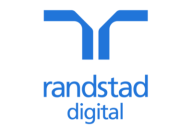Public Cloud
The public cloud, or open cloud, is an online infrastructure that is shared among multiple organizations. Specifically, it involves sharing storage capacity, software, hardware, or entire platforms. One of the most well-known cloud applications is Microsoft 365.

Benefits Public Cloud
- Cost-effective: You don't need to invest in hardware and/or software yourself. You only pay for what you use with the cloud provider.
- Scalability: Need more capacity temporarily? No problem. You can easily request more or less infrastructure as needed.
- Ease of use: You don't have to worry about maintenance or updates. This is taken care of for you. Additionally, there is a support team available to assist with any issues or questions.
- Reliability: Since cloud providers have thousands of servers located in one place, there is significantly greater computing power, and any disruptions are quickly addressed.

Who offers public cloud platforms?
Currently, there are three major players that smaller cloud providers find it difficult to compete with: Microsoft Azure, Amazon Web Services, and Google Cloud Platform. Amazon and Microsoft, in particular, have the largest market share. However, companies like Alibaba and Dropbox also offer cloud services.

Who uses the public cloud?
The public cloud can be used by anyone, so there isn't one specific target audience. However, the public cloud is particularly beneficial for businesses with fluctuating needs that require the ability to scale quickly. Therefore, it is often startups and rapidly growing companies that rely on public cloud applications.

Are there other cloud options?
In addition to the public cloud, there are also private cloud and hybrid cloud options.
- Private cloud is the complete opposite of the public cloud. With a private cloud, everything is kept internal. You invest in hardware, such as servers, that are physically located at your company or another site.
- As with all opposites, there is also a middle ground. When you combine the public and private cloud, we refer to it as a hybrid cloud. In this form, you have both your own infrastructure on-premises and online infrastructure that you rent from a cloud provider.
Let's meet!
Which cloud model is the best option varies from company to company. It is therefore important to gather information or seek advice. At Level27, we have years of experience in all cloud applications. Let's talk!




































